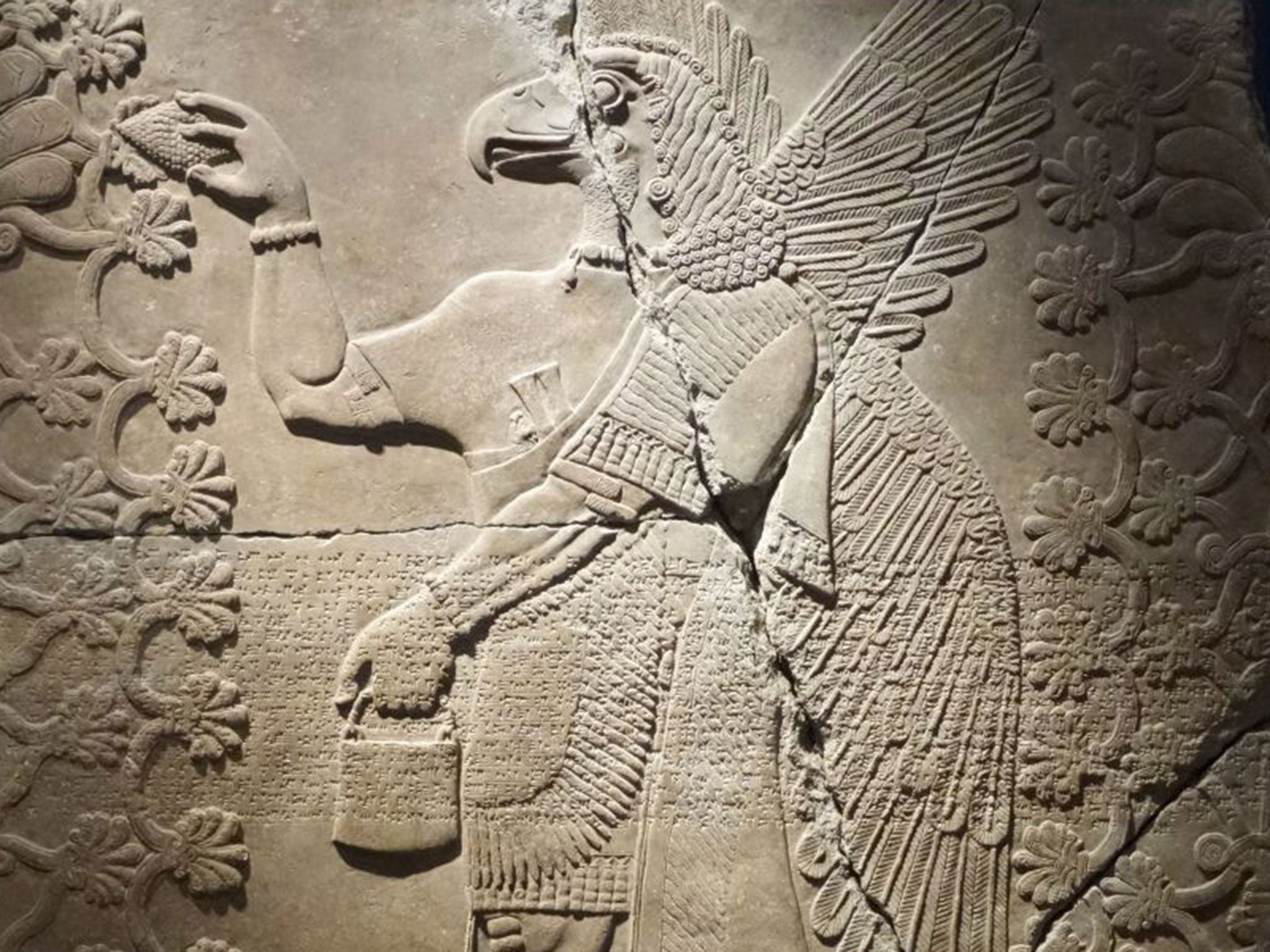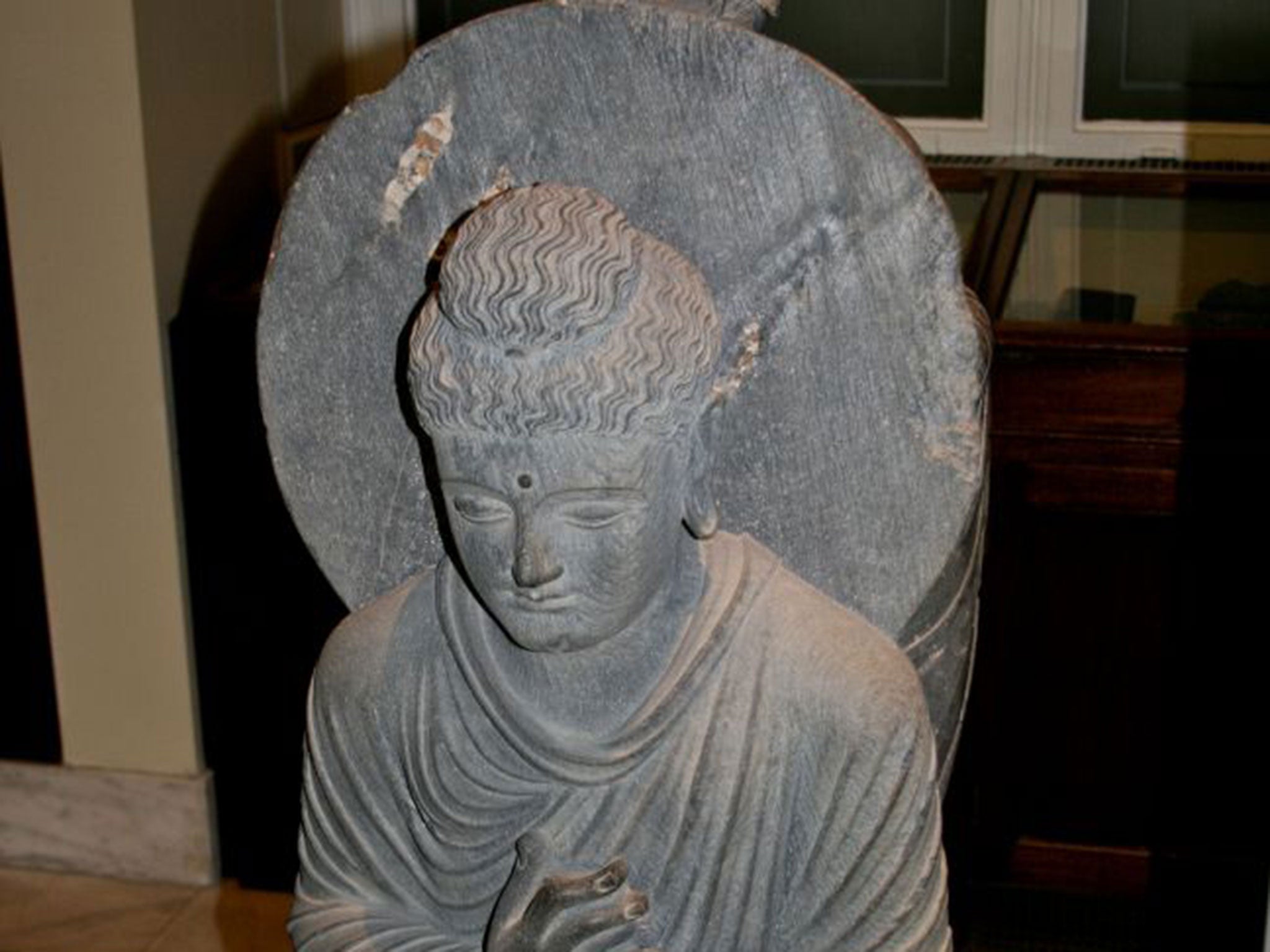British Museum criticised for loaning artefacts to Abu Dhabi organisation accused of abusing rights of workers
Rights groups are critical of the museum’s decision to hand prized relics to Abu Dhabi

Your support helps us to tell the story
From reproductive rights to climate change to Big Tech, The Independent is on the ground when the story is developing. Whether it's investigating the financials of Elon Musk's pro-Trump PAC or producing our latest documentary, 'The A Word', which shines a light on the American women fighting for reproductive rights, we know how important it is to parse out the facts from the messaging.
At such a critical moment in US history, we need reporters on the ground. Your donation allows us to keep sending journalists to speak to both sides of the story.
The Independent is trusted by Americans across the entire political spectrum. And unlike many other quality news outlets, we choose not to lock Americans out of our reporting and analysis with paywalls. We believe quality journalism should be available to everyone, paid for by those who can afford it.
Your support makes all the difference.The British Museum has come under fire over plans to loan hundreds of culturally significant artefacts, including some of its much-prized “highlights”, to an organisation in Abu Dhabi which has been accused of abusing the rights of workers.
Curators at the museum have drawn up a list of around 500 objects, a selection of which could be loaned to the Zayed National Museum in the United Arab Emirates for up to five years.
It will receive a significant fee for the loan, which it needs to offset the impact of Government cuts.

Last night human rights groups said the Zayed, which was designed by British architect Norman Foster and is due to open next year, is being built using a system of “modern slavery” and urged the British Museum to rethink its loan.
The Zayed is one of a number of cultural destinations currently being built on Saadiyat Island, an idyllic stretch of sand dunes near Abu Dhabi. Tens of thousands of migrant workers have been recruited to help with the giant construction project, but it is claimed that many have been housed in slums or deported for complaining about low wages.
The list of treasures shortlisted for loan by the British Museum includes valuable Assyrian reliefs, Sasanian gold belt fittings, Greek and Roman jewels and Ming dynasty porcelain.
It initially planned to send only objects in storage, but according to The Art Newspaper the list has now been upgraded to include some of the museum’s 5,000 “highlights”. The scale of the loan has reportedly resulted in “large gaps” being left on the walls of the museum’s Assyrian galleries, which has barely changed since it was created in the 1850s. Among the seven Assyrian reliefs is one from the palace at Nimrud, which was bulldozed by the terrorist group Islamic State in March.
“The museums and other developments on Saadiyat Island are all being built on the back of a system of modern slavery,” said Sharan Burrow, general secretary of the International Trade Union Confederation.
“The UAE’s medieval labour laws put the migrant workers there totally under the control of their employers, leaving them exposed to death and injury at work, and unable to escape the country.
“Any overseas cultural institution collaborating with them has an absolute responsibility to ensure that real action is taken, or face enormous risk to their own reputations and standing.”

A spokeswoman for the British Museum said it was working with Abu Dhabi’s Tourism Development and Investment Company (TDIC), which is overseeing the construction of the Zayed, to ensure that workers were treated properly and that the museum’s staff and Trustees had personally visited the site.
She added: “The Trustees welcome the steps taken by TDIC to ensure that all construction workers are well looked after and their rights respected.”
The spokeswoman said the 500 objects were only a “preliminary pool” and that the exact number to be loaned – as well as the length of time they would spend in Abu Dhabi – had yet to be agreed.
The Zayed National Museum did not respond to a request for comment.
Loan stars: Items heading to the Gulf
* Assyrian panels including the Banquet Scene, which depicts King Ashurbanipal and his queen in their garden enjoying the music of harpists (645-635BC), and an eagle-headed sage from Nimrud’s Northwest Palace (875-860BC)
* Ceremonial gold sword-sheath and a silver statuette of a Persian king, discovered during the 1870s on what is now the border between Tajikistan and Afghanistan (4th-5th century BC)
* Sasanian silver bowl depicting Persian King Bahram Gur hunting lions (5th-7th century AD)
* Set of 10 drawings (1532-43) by Hans Holbein the Younger, featuring pearls from the Gulf
* Silver bowl inscribed to the Achaemenid King Artaxerxes I (464-424BC)
* The Barber Cup, a Roman decorated fluorspar vessel from Turkey (AD50-100)
* Herat brass ewer from Afghanistan (late 12th to early 13th century)
* Early Iron Age jar from present-day Iran
* An Egyptian mummified falcon (Ptolemaic)
* Gandhara stone Buddha (2nd-3rd century AD)
* Oxus treasure, a collection of about 180 pieces of metalwork in gold and silver from the Achaemenid Persian period (4th-5th century BC)
Join our commenting forum
Join thought-provoking conversations, follow other Independent readers and see their replies
Comments